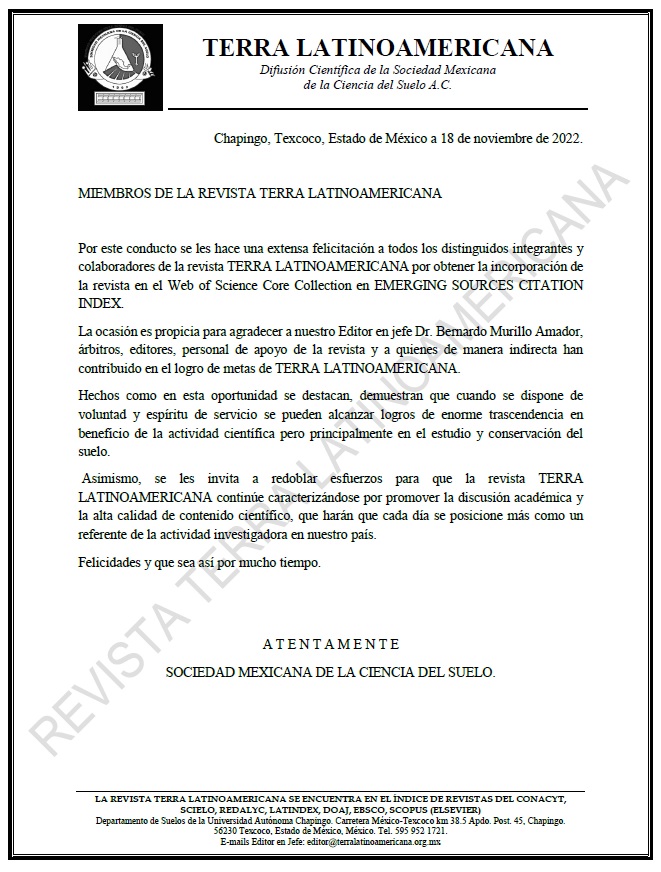Groundwater types and total dissolved solids distribution in the aquifer of La Paz Baja California Sur, México
DOI:
https://doi.org/10.28940/terra.v36i1.316Keywords:
seawater intrusion, groundwater quality, salts contamination, contamination of groundwater in coastal areasAbstract
The aquifer of La Paz has been overexploited for several years, causing contamination by seawater intrusion. A well-monitoring network, which included public-urban, agricultural, livestock and service use water wells, was set up in 2013. Representative sampling during the dry and rainy seasons was carried out. Concentration of total dissolved solids (TDS), temperature, dissolved oxygen and pH were measured. Results indicate that most agricultural wells contain high TDS concentration, compared to potable water wells with concentration below 1000 mg L-1, which is the limit allowed by the Mexican official standard (MOS). Majority ion data from 14 wells near the coast with high concentration of TDS were also analyzed, with which a Piper diagram was constructed. Two main types of water were found: calcium-chloride and sodium-chloride. The presence of sodium in concentrations exceeding 200 mg L-1 in 8 wells, and magnesium with more than 50 mg L-1 in 10 wells, both above the MOS, reveal that its origin is seawater. Calcium concentrations above 250 mg L‑1 in 7 wells points to the existence of sedimentary layers of chemical-organic origin that compose the inner stratigraphy of the aquifer through which groundwater circulates. High chloride concentrations of more than 1000 mg L-1 in 6 wells with high concentration of TDS, suggests that its source is seawater intrusion. Based on the distribution of TDS concentration, two broad areas affected by seawater intrusion were delimited, and along with the distribution of water families, three main aquifer zones were identified.Downloads
Publication Facts
Reviewer profiles N/A
Author statements
- Academic society
- Terra Latinoamericana
- Publisher
- Mexican Society of Soil Science, C.A.

















